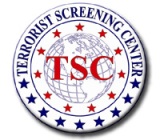During the past week, representatives of civil liberty groups and the U.S. government have feuded over how many people were on the watch list of individuals suspected of being potential terrorists. The American Civil Liberties Union held a recent news conference to publicize their calculation that the database now includes more than 1 million names, whereas homeland security officials claimed that "only" 400,000 people were included. Caroline Fredrickson, the ACLU's Washington legislative director, called the growth in the size of the terrorist watch list "unfair to travelers, unfair to law-abiding Americans and unfair to the security screeners who have to work in this ridiculous system." Barry Steinhardt, director of the ACLU's Technology and Liberty Program on Government Data Mining, observed that, "There cannot possibly be 1 million terrorists threatening and poised to attack us. If there were, our cities would be in ruins." At the briefing, the ACLU speakers concluded that the system had become so sweeping and cumbersome that it likely degraded rather than enhanced U.S. security by wasting resources and furthering an unhealthy paranoia about potential terrorist threats. In response, the Terrorist Screening Center (TSC) issued a written rejoinder: "We strive to have the watch list contain all appropriately suspected terrorists who represent a threat to the U.S., but only appropriately suspected terrorists. Independent government audits have recognized our ongoing efforts to constantly check watch list data to improve quality, reduce the number of misidentifications or mitigate their effects, and enhance traveler redress efforts." TSC spokesman Chad Kolton said that fewer than half the number of individuals claimed by the ACLU are resident in the Terrorist Screening Database and that only a small percentage are Americans living in the United States.
No Simple Solution to Problem of Terrorist Watch List Inflation

